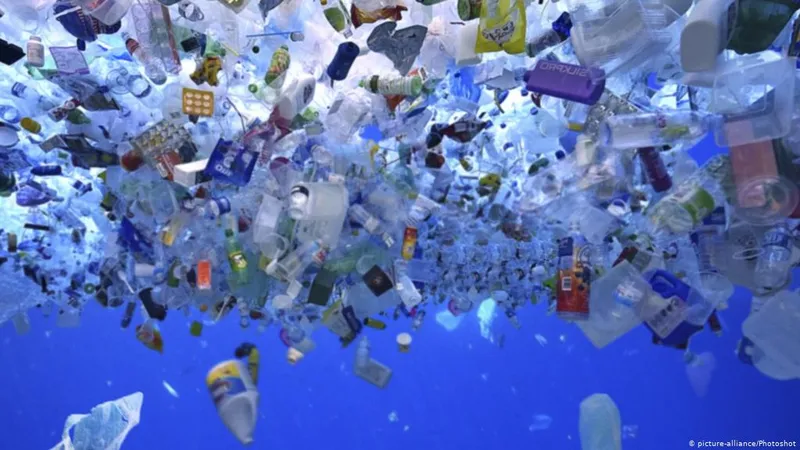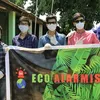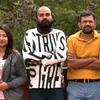World Environment Day: These 4 organisations are changing the world with sustainable practices
On World Environment Day, YS Weekender highlights the works of several individuals and organisations who are moving towards creating a sustainable world.
Albert Einstein once said, “We cannot solve our problems with the same thinking we used when we created them.”
Several years later, the industrial world is now moving towards building a sustainable world. We are all witnessing the harrowing effects of climate change, marine pollution, endangerment of wildlife, and deforestation — all amounting to untimely tropical cyclones, melting of ice caps, raging forest fires, and more.
According to YourStory Media research data, in 2020, a total of $67.29 million was pumped across 18 deals in energy, waste management, and cleantech startups. This year, $6.46 million was pumped across five deals, so far.

Image credit: Shutterstock
To cite an example, startups like Zerodha have pumped $100 million into its Rainmatter Fund to build a playbook for climate change solutions and livelihoods to create an equitable society.
Today, on World Environment Day, YS Weekender highlights the works of several individuals and organisations who are moving towards creating a sustainable world.
Footprint Coalition Ventures
Earlier, in 2021, American actor and producer Robert Downey Jr announced the launch of his venture fund Footprint Coalition Ventures at the World Economic Forum's Digital Davos event.
Footprint Coalition Ventures will be investing in early and late-stage companies, alongside institutional partners. It will also be supporting early scientific and technological research efforts to advance frontiers.
1559819428224.png?fm=png&auto=format)
Source: Marvel
"I love our planet but it's got problems. We need new solutions, and lucky for us, sacrifice is not the only answer. I am seeing crazy, amazing tech products that can restore the environment," Robert Downey Jr, who played Iron Man in MCU's 'The Avengers' movie franchise, said.
In 2019, at Amazon's re:MARS conference, ‘The Avengers’ star had revealed his plans on using advanced technology to clean the planet. The venture fund will focus on sustainable technology, AI, and robotics, among others.
Dolce Vee
In 2018, while Komal Hiranandani was pursuing her Master’s at Cornell, she felt sustainability and sustainable efforts needed to be brought to the forefront. For the next three years, she and her husband Siddharth Sah worked on building SaltScout, which aims to make being eco-friendly more accessible and engaging for people.
“I felt that consumption patterns we follow today leave one of the biggest carbon footprints on the planet. And it was difficult to find options that were socially conscious that were eco-friendly,” she says.

Bhumi Pednekar
On Earth Day, this year, the startup launched Dolce Vee — a brand that focuses on pre-owned, or as the team calls it, ‘pre loved’ fashion — in association with Bhumi Pednekar.
The actor and climate warrior launched the Dolce Vee Environmental Footprint Calculator, which calculates the estimated water and carbon savings associated with a piece of pre-loved clothing.
The most recent pair of jeans processed by the startup saves an estimated 1,826 litres of water — about as much as a person drinks in a year — and an estimated 4 kg of carbon dioxide or equivalent greenhouse gases — roughly equivalent to driving a car for 23 km.
Samudhyoga Waste Chakra
According to Central Pollution Control Board (CPCB), India generates over 3.3 million metric tons of plastic waste each year.
While many plastic recycling units are not eco-friendly and produce harmful emissions, Chennai startup Samudhyoga Waste Chakra — established in 2019 — uses advanced technology, which derives value out of solid and liquid waste in a decentralised, digitised, and decarbonised fashion.
The startup is working to make the best out of solid and liquid waste produced in domestic areas. It is working on a pilot project with the South Chennai Corporation to launch a pyrolysis plant that can prevent 250 kg of plastics from reaching the oceans per day to produce 200 litres of oil with zero emissions for industrial use.

Samudhyoga has worked on two technologies — DZEEP and EcoFert.
Decentralised Zero Emission Energy-efficient Pyrolysis (DZEEP) is a unit that converts 1,000 kg of plastic (mixed plastic, MLPs, and polyolefin) to 800 litres of oil with zero emissions and high performance through the process of pyrolysis. This unit requires about 2,500 square feet of land.
Its second technology, EcoFert, works on processing urine released to water bodies that cause eutrophication (increasing mineral content in water bodies).
Jhatkaa.org
Home to 235 species of birds, 400 species of insects, and 100 species of butterflies, the Hesaraghatta Lakebed and habitat, Bengaluru, is under threat as the plan to build a Film City looms large.
Environmentalists, activists, and concerned citizens have been vehemently opposing the move and have petitioned that the entire 5,010 acres of the lakebed be designated as the Greater Hesaraghatta Grassland Conservation Reserve.
Among those leading the campaign against the razing of the grasslands and the decimation of these species is Jhatkaa.org, a digital advocacy platform. Jhatkaa has successfully led numerous campaigns against key issues and towards realising their ‘vision of a more equitable, inclusive and sustainable India’.

Volunteers participate in a protest outside Town Hall in Bengaluru in September 2019.
The preservation of the grasslands is just one of the campaigns that Jhatkaa has supported since it was founded by Deepa Gupta in 2012. Since then, the group has mobilised over 1.4 million Indians to take collective and affirmative action against issues surrounding the environment, sustainability, gender, health, and education.
Jhatkaa.org believes in holistically approaching environmental issues. Their campaigns range from macro issues like seeking sustainable modes of transport, and solar and renewable energy sources to more localised issues like garbage burning.
Edited by Anju Narayanan





![[Good Governance] Bihar government is taking a big leap in e-waste management](https://images.yourstory.com/cs/5/98c65090592f11ea9f62339ce853ca75/Image1h4d-1602591077578.jpg?fm=png&auto=format&h=100&w=100&crop=entropy&fit=crop)





